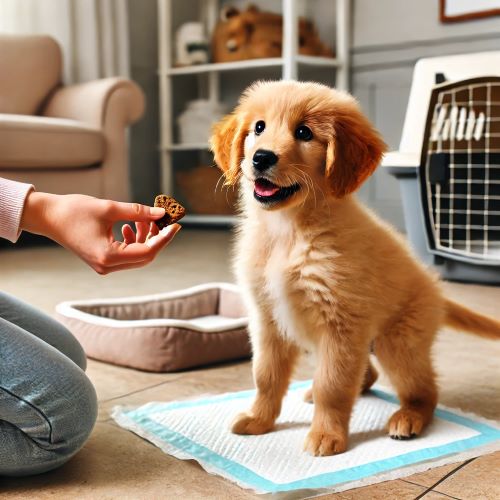Potty training a puppy is one of the first challenges new pet owners face, but with patience and consistency, you can master house-training techniques that work. Whether you’ve just brought home a new pup or are struggling with accidents, this guide offers expert tips to keep your home clean and your puppy happy.
Why Potty Training Matters
Housebreaking a puppy establishes good habits early on. Puppies don’t naturally know where to go, so teaching them to use a designated spot—whether it’s outside or on a pee pad—prevents messes and builds a strong foundation for future training. Start as soon as your puppy arrives home, ideally between 8 and 12 weeks of age.
Step 1: Create a Schedule
Consistency is key in potty training. Take your puppy out every 2 hours, plus after meals, naps, and playtime. Choose a specific spot outside and use a command like “go potty” to associate the action with the location. Praise and reward with treats immediately after they go to reinforce the behavior.
Step 2: Watch for Signs
Puppies often signal when they need to go by sniffing, circling, or whining. Recognizing these cues allows you to act quickly. If you catch them in the act indoors, interrupt with a gentle “no” and take them to the right spot. Avoid punishment—it can confuse them and slow progress.
Step 3: Use a Crate
Crate training complements potty training because puppies avoid soiling their sleeping area. Choose a crate just big enough for them to stand and turn around in. Use it when you can’t supervise, but don’t leave them in too long—puppies under 6 months can only hold it for a few hours.
Dealing with Accidents
Accidents happen, especially in the early stages of housebreaking a puppy. Clean messes with an enzymatic cleaner to remove odors that might attract them back to the spot. Stay patient; most puppies master potty training by 4-6 months with consistent effort.
Tips for Success
Keep a journal to track your puppy’s potty times, adjust your schedule as they grow, and be flexible—every pup learns at their own pace. If you live in an apartment, consider pee pads or a balcony setup. The goal is a stress-free process for both you and your furry friend.
Potty training a puppy takes time, but the reward is a well-behaved companion and a clean home. Stick to these proven techniques, and you’ll see progress fast. For more puppy training tips, explore our other guides!
